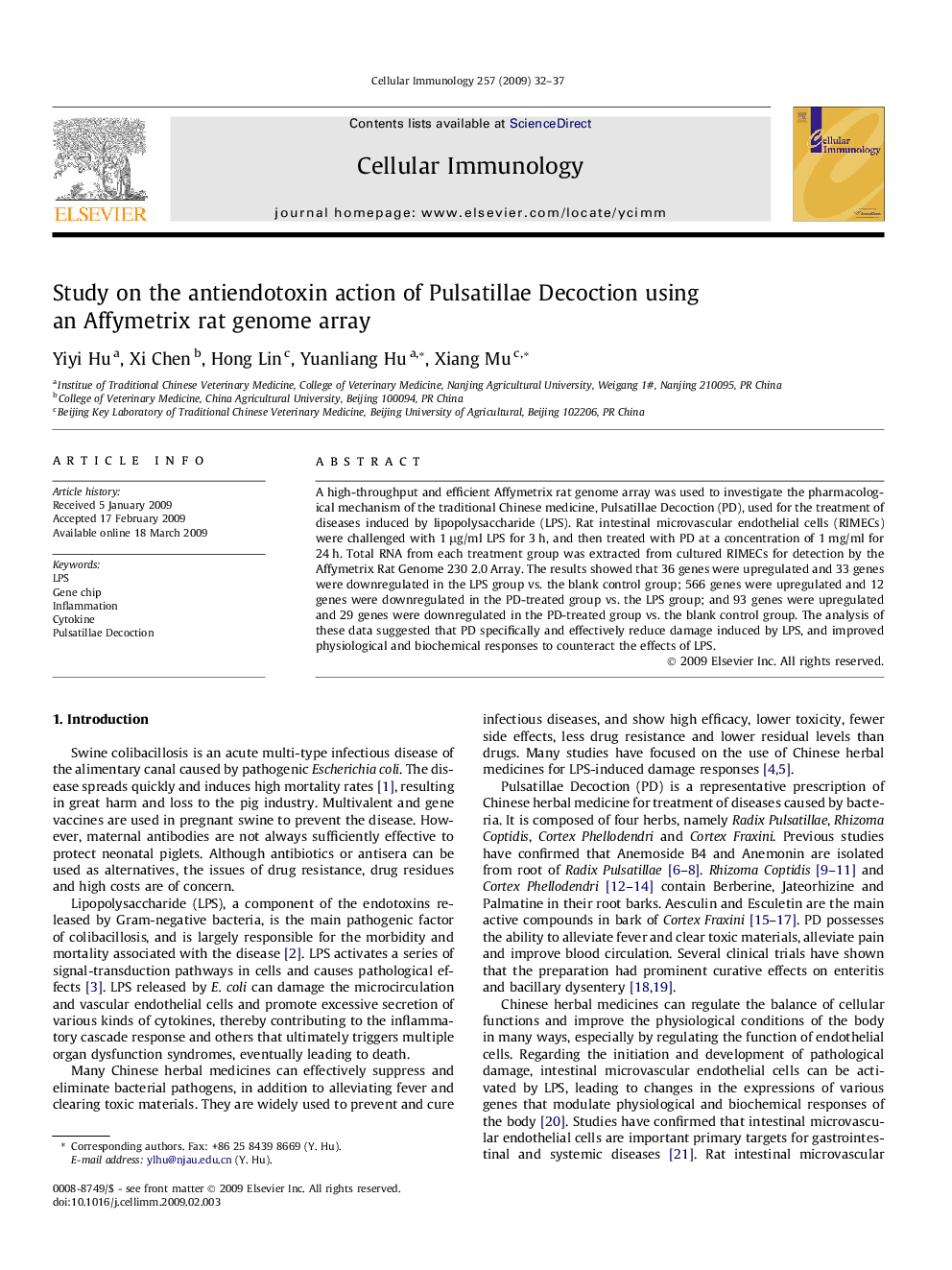| Article ID | Journal | Published Year | Pages | File Type |
|---|---|---|---|---|
| 2167921 | Cellular Immunology | 2009 | 6 Pages |
A high-throughput and efficient Affymetrix rat genome array was used to investigate the pharmacological mechanism of the traditional Chinese medicine, Pulsatillae Decoction (PD), used for the treatment of diseases induced by lipopolysaccharide (LPS). Rat intestinal microvascular endothelial cells (RIMECs) were challenged with 1 μg/ml LPS for 3 h, and then treated with PD at a concentration of 1 mg/ml for 24 h. Total RNA from each treatment group was extracted from cultured RIMECs for detection by the Affymetrix Rat Genome 230 2.0 Array. The results showed that 36 genes were upregulated and 33 genes were downregulated in the LPS group vs. the blank control group; 566 genes were upregulated and 12 genes were downregulated in the PD-treated group vs. the LPS group; and 93 genes were upregulated and 29 genes were downregulated in the PD-treated group vs. the blank control group. The analysis of these data suggested that PD specifically and effectively reduce damage induced by LPS, and improved physiological and biochemical responses to counteract the effects of LPS.
